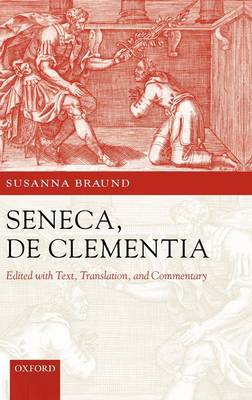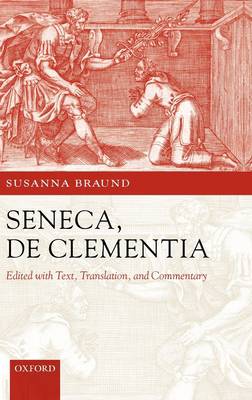
- Afhalen na 1 uur in een winkel met voorraad
- Gratis thuislevering in België vanaf € 30
- Ruim aanbod met 7 miljoen producten
- Afhalen na 1 uur in een winkel met voorraad
- Gratis thuislevering in België vanaf € 30
- Ruim aanbod met 7 miljoen producten
Zoeken
Omschrijving
Soon after Nero's accession in 54 CE, his tutor, the philosopher Seneca, addressed to his young pupil an essay called De Clementia in which he offered advice on how to behave in his new role. This is the first full philological edition of the De Clementia in English. It includes the text with apparatus criticus, a new translation, a substantial introduction, and detailed commentary on matters of textual criticism, literary criticism and issues of socio-political, historical, cultural, and philosophical significance. The notes illuminate Seneca's language and thought through extensive citation of parallel passages from his other writings, from those of other imperial Latin authors, and from other relevant texts. The introduction includes discussion of Seneca's life, relationship with Nero, writings, and philosophy; the date, genre, scope, structure, and argument of De Clementia; the concept of clementia; kingship theory in Greek literature and Republican Rome; and the work's afterlife and influence.
Specificaties
Betrokkenen
- Auteur(s):
- Uitgeverij:
Inhoud
- Aantal bladzijden:
- 472
- Taal:
- Engels
Eigenschappen
- Productcode (EAN):
- 9780199240364
- Verschijningsdatum:
- 25/04/2009
- Uitvoering:
- Hardcover
- Formaat:
- Ongenaaid / garenloos gebonden
- Afmetingen:
- 157 mm x 234 mm
- Gewicht:
- 861 g

Alleen bij Standaard Boekhandel
+ 708 punten op je klantenkaart van Standaard Boekhandel
Beoordelingen
We publiceren alleen reviews die voldoen aan de voorwaarden voor reviews. Bekijk onze voorwaarden voor reviews.








